Your cart is currently empty.
Cart
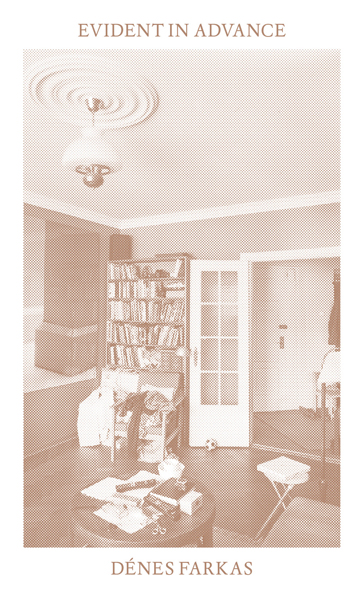
Evident in Advance
Edited by Adam Budak
Texts by Maurice Blanchot, Adriana Cavarero, Bruce Duffy, Markus Miessen, Daniele Monticelli
“If I don’t trust this evidence why should I trust any evidence?," Wittgenstein asked himself in "On Certainty." Dénes Farkas’s work is haunted by a drama of not delivering a trust to a singular evidence of this world: a world as he found it. Hysterically reproduced paper maquettes of choreographed architecture, imprisoned within a clumsy, photographic frame, are abstract shelters for imagined and unspoken texts. Words are characters in performance of a world as a text.
As a proposition, Farkas’s exhibition and publication for the Estonian Pavilion of the 55th Venice Biennale in 2013 is "an absent book" and yet "the book to come." The installation is a piece of spatial, rhythmical writing; a quintet of interiors woven of autonomous though intertwined, poetic fragments of quasi-domestic setting: a library, a garden, an absent cinema, a spatial book, an obsession chamber (a locus of deranged architect and non-writer). "A story? No. No stories, never again," Farkas repeats after Maurice Blanchot, while rehearsing his art of ultimate denial and rejection.
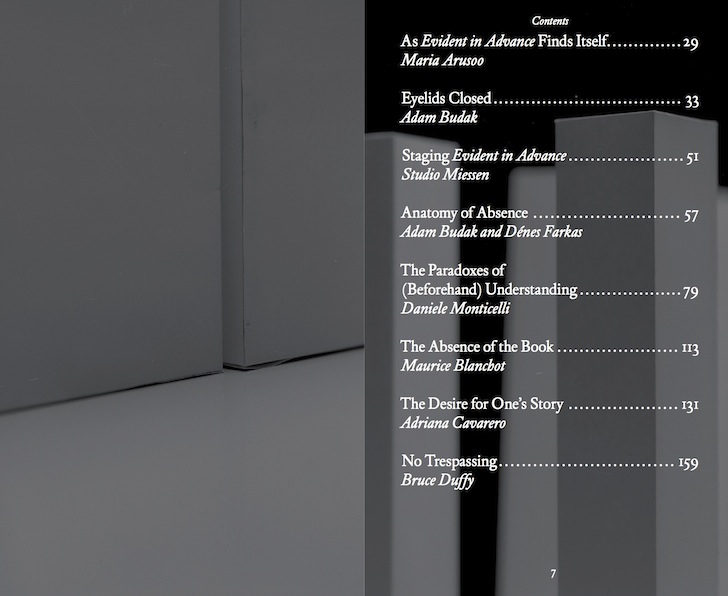
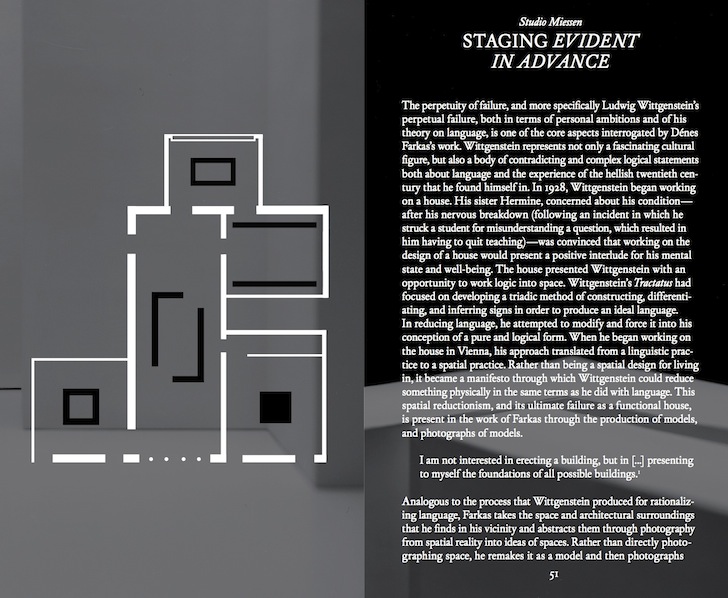
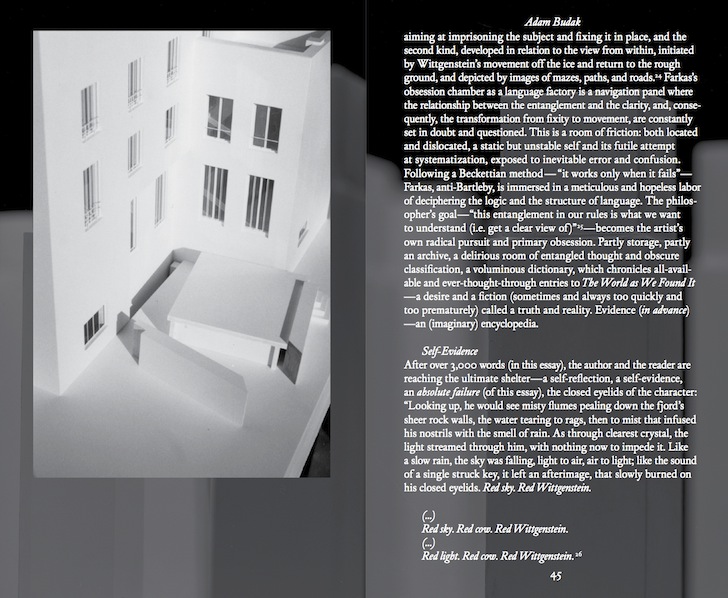
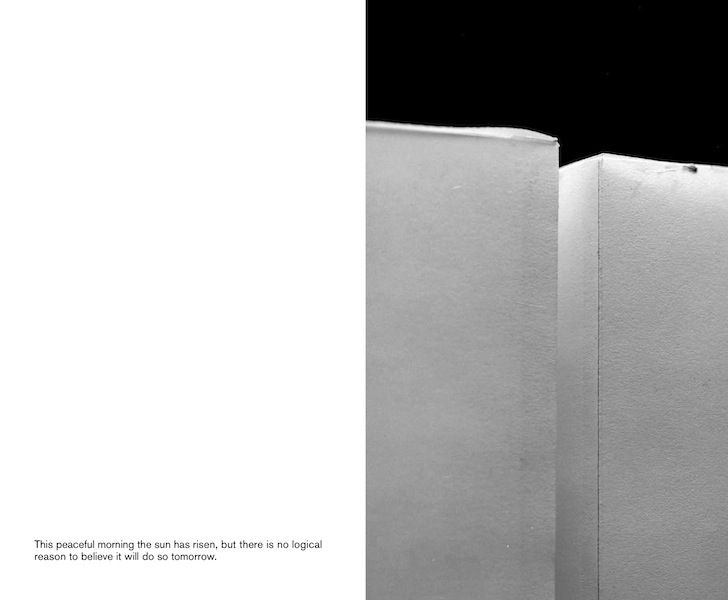
Softcover
€22.00